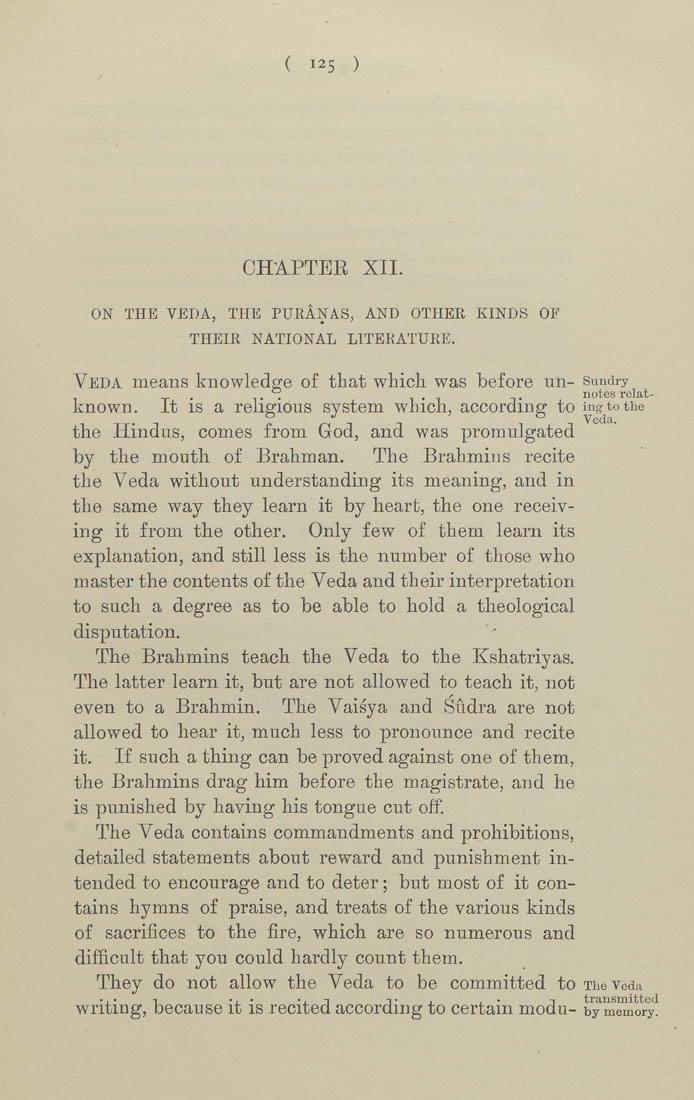Bīrūnī, Muḥammad ibn Aḥmad, Alberuni's India (v. 1)
(London : Kegan Paul, Trench, Trübner & Co., 1910.)
|
||
|
|
|
|
| Page 125 |

( 125 ) CHAPTER XII. ON THE VEDA, THE PURInAS, AND OTHER KINDS OE THEIR NATIONAL LITERATURE. Veda means knowledge of that which was before un- sundry -r . T ■ 1-1 -I • notes relat- known. It is a religious system which, according to ingtothe the Hindus, comes from God, and was promulgated by the mouth of Brahman. The Brahmins recite the Veda without understanding its meaning, and in the same way they learn it by heart, the one receiv¬ ing it from the other. Only few of them learn its explanation, and still less is the number of those who master the contents of the Veda and their interpretation to such a degree as to be able to hold a theological disputation. The Brahmins teach the Veda to the Kshatriyas. The latter learn it, but are not allowed to teach it, not even to a Brahmin, The Vaisya and Sudra are not allowed to hear it, much less to pronounce and recite it. If such a thing can be proved against one of them, the Brahmins drag him before the magistrate, and he is punished by having his tongue cut off. The Veda contains commandments and prohibitions, detailed statements about reward and punishment in¬ tended to encourage and to deter; but most of it con¬ tains hymns of praise, and treats of the various kinds of sacrifices to the fire, which are so numerous and difficult that you could hardly count them. They do not allow the Veda to be committed to TheVeda .,• 1 •,• •. -I T , ,. -1 transmitted writing, because it is recited according to certain modu- by memory. |
| Page 125 |







